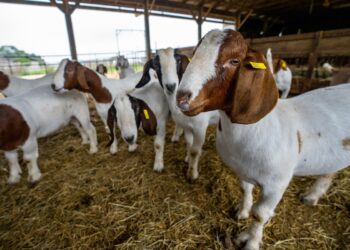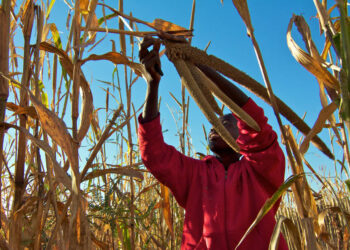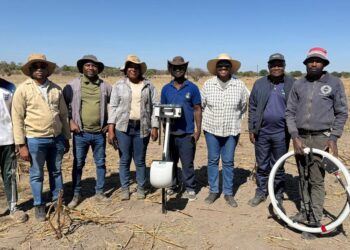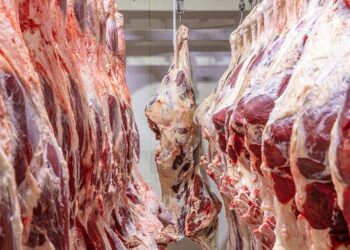
Livestock health has a direct link to performance because some diseases or health conditions result in huge economic losses.
Livestock health position is compromised by disease-causing organisms, pre-disposing factors related to environmental conditions, and livestock management such as nutrition and handling amongst others.
 To this end, it is very important for any livestock farmer to develop and follow a disease control program or calendar to ensure that their animals are healthy, perform optimally, and participate in the market.
When developing an animal health calendar, one needs to consider the common prevailing diseases in the farming area, and the diseases that are termed “state controlled†or the compulsory vaccinations. The compulsory vaccinations in Namibia target diseases such Foot and Mouth, Anthrax, Brucellosis, and Contagious Bovine Pleuropneumonia (CBPP).
Furthermore, other factors that can influence a farmer’s animal health calendar include, the environmental conditions, marketing, and breeding activities amongst others. There are other diseases affecting livestock production that need to be prevented. These include, Botulism, Pasteurellosis (pneumonia), Enterotoxaemia (pulpy kidney), Chlamydiosis (enzootic abortion), Lumpy skin disease, and Blackquarter amongst others.
To maintain a good animal health status, prevention is key, and it all starts at the farm. The first task is to ensure that the farming environment is clean and safe for both animals and humans. Animals should be protected from hazardous environments such as dumpsites where they can eat or pick harmful objects such as bones, plastic, batteries, etc., and sewerage sites or bush toilets where they can be exposed to pathogens, and/or parasites such as the Taenia Saginata that cause beef measles.
 In addition, livestock health risks are posed by the kraal environment. A dirty or unhygienic kraal can harbor different harmful organisms or bacteria, for example the Clostridium tetani that cause Tetanus (locked-Jaw, klem-in-die kaak). Parasites such as ticks, fleas and lice prevail in unhygienic kraals.
Farmers need to prevent disease transmission by ensuring that sick animals are isolated, and the environment or premises are disinfected. Moreover, newly bought animals should be subjected to quarantine, inspection, and vaccination to ensure that they are healthy before their introduction or incorporation with others.
Furthermore, farmers need to learn about the different diseases and their symptoms, including remedial actions. This will help them detect diseases early and provide the correct remedies well in time.
Another important aspect is the use and handling of veterinary medicines. There are concerns from farmers that medicines are not effective and cause several abnormalities or conditions e.g., abortions, lameness, pain and even deaths.
 However, there is no medicine manufactured deliberately to cause harm to animals, the crucial factor is the way in which the medicine was handled and used as well as the condition and handling of the animals.
Vaccines are only used on healthy animals to prevent diseases, for example, the common products of vaccines include Supavax, MultivaxP, and One Shot Ultra7 amongst others. The dosage (volume injected per animal) is predetermined, e.g., Supavax (2ml per animal), the handling and use require that a cool temperature (e.g., 2°C – 8°C) chain be maintained (not frozen) from the supplier up to the kraal.
In conclusion, develop and use your own animal health plan or program, and ensure that all necessary vaccinations are done at the right time.
 It is very important to have a first-aid box where all critical medicines are available for possible emergency situations such as bloat, poisoning, injuries, and any other conditions of concern in your kraal. Lastly, always observe your livestock condition and behavior and consult your veterinarian or an expert for advice.
*Erastus Ngaruka is Technical Advisor: Livestock and Rangeland Management at Agribank











